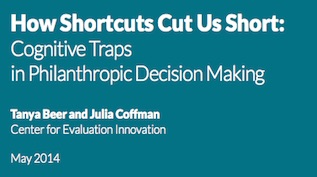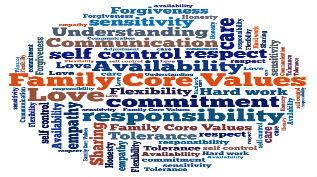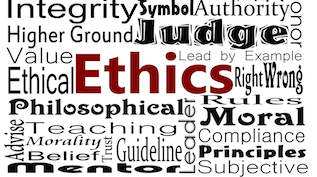How shortcuts cut us short: Cognitive traps in philanthropic decision making
Posted on May 24, 2014 by Center for Evaluation Innovation, The MasterCard Foundation

Cognitive traps can hinder any decision a foundation makes about its strategies. This includes how to construct a theory of change to address it, and which grantees are best suited to do the work. It also includes decisions made during implementation, such as whether strategy adjustments are needed or whether to renew funding for certain activities or grantees… Read More









